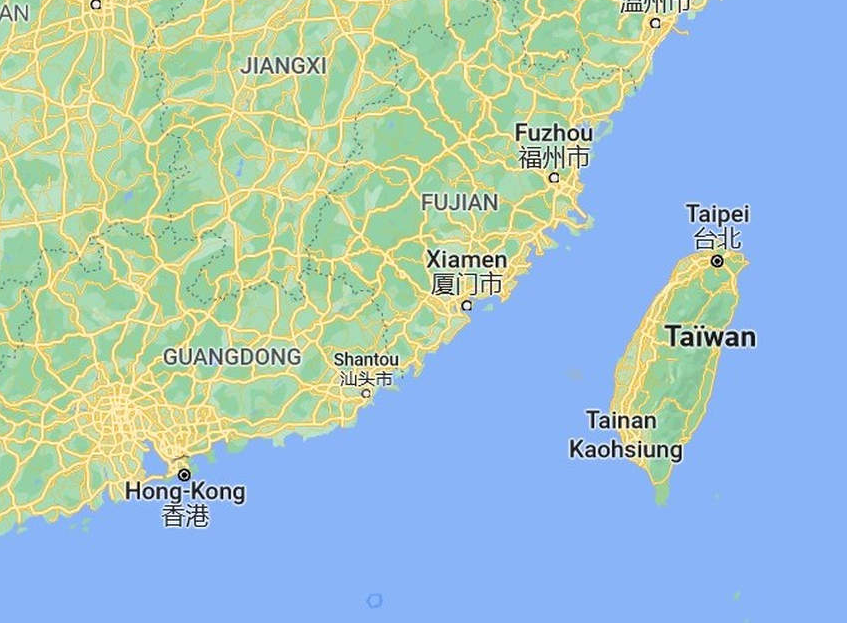Taiwan’s $40 billion defense surge: A last stand against Beijing’s aggression?
- Taiwan approves historic $40 billion defense budget to counter China’s invasion threats with AI missiles, drones, and air defense upgrades.
- Beijing dismisses the move as reckless, warning it will bring disaster while escalating military and economic pressure.
- Japan joins the standoff, vowing military intervention if China attacks, sparking fury from Beijing over missile deployments near Taiwan.
- Taiwan’s president frames the budget as a moral stand against surrender, comparing it to Hong Kong’s fate under Chinese control.
- Trump’s push for Taiwan to fund its own defense clashes with China’s 2027 invasion timeline, raising stakes for U.S. support.
Taiwanese President Lai Ching-te has announced a $40 billion special defense budget, the largest in the island’s history, citing China’s relentless military harassment, espionage, and preparations for a potential invasion. The move, covering 2026 to 2033, will fund AI-enhanced missile systems, drones, and a new air defense network, pushing Taiwan’s military spending to 3.3% of GDP – a level that hasn’t been seen since 2009.
Lai’s stance was unequivocal: “There is no room for compromise on national security.” The budget isn’t just about hardware; it’s a declaration that Taiwan refuses to become “China’s Taiwan.”
But Beijing wasn’t listening. Within hours, China’s Taiwan Affairs Office spokesperson, Peng Qingen, dismissed the spending as Taiwan wasting resources “currying favor with external powers” and warned it would “plunge Taiwan into disaster.”
A shift from diplomacy to deterrence
For decades, Taiwan’s defense spending languished under administrations that prioritized diplomacy with Beijing. But since 2016, China’s aggression, including military drills, gray-zone harassment, and economic coercion, has forced a reckoning.
The new funding aligns with U.S. pressure for Taiwan to shoulder more of its defense burden. Raymond Greene, head of the American Institute in Taiwan, called the move “a major step towards maintaining peace and stability across the Taiwan Strait by strengthening deterrence.” Yet the timing is fraught. Just a day earlier, Donald Trump and Xi Jinping spoke by phone, with Xi reiterating China’s claim that “Taiwan’s return to China is an integral part of the post-war international order.”
Japan enters the fray
Taiwan isn’t standing alone. Japan, long cautious about provoking Beijing, is now openly preparing for conflict. Prime Minister Sanae Takaichi recently declared that a Chinese attack on Taiwan could trigger Japanese military intervention in a statement that sent Beijing into a fury. China retaliated economically and condemned Japan’s plan to deploy missiles on Yonaguni Island, just 110 kilometers from Taiwan.
“Japan’s deployment of offensive weapons near Taiwan is extremely dangerous,” Peng snapped, vowing to “crush all foreign interference.” The escalation underscores a regional domino effect: As China tightens its grip, Taiwan, the U.S., and Japan are tightening theirs.
The cost of surrender vs. the price of freedom
Lai framed the budget as a moral imperative, not just a military one. “Compromising with aggression only brings war and enslavement,” he warned, invoking Hong Kong’s fate under “one country, two systems.” His government’s security briefing outlined expanded Chinese espionage, propaganda, and transnational repression, all tactics designed to break Taiwan’s will before a single shot is fired.
Yet not everyone in Taiwan is on board. The opposition Kuomintang (KMT) party, historically pro-Beijing, has resisted defense hikes. “We want to stay far away from the flames of war,” said KMT chairwoman Cheng Li-wun, urging Lai to “step back from the brink.” But with China’s military budget soaring to $245 billion and its 2027 invasion timeline looming, Taiwan’s leadership sees no alternative.
Trump’s approach to Taiwan has been unpredictable but firm. While he’s pushed allies to pay for their own defense, he’s also rejected Beijing’s claims, famously stating “Taiwan is Taiwan” during a recent Asia trip. His administration has approved arms sales, although delays have frustrated Taipei. Now, with Taiwan committing to 5% GDP defense spending by 2030, the question is whether Washington will match its rhetoric with action.
A warning for the world
Taiwan’s defiance isn’t just about its survival; it’s a test case for global resistance to authoritarian expansion. If Beijing succeeds in swallowing Taiwan, the message to other democracies will be clear: Resistance is futile. But if Taiwan holds the line, it could rewrite the rules of 21st-century geopolitics.
The $40 billion budget is a gamble, but it’s one Taiwan believes it can’t afford to lose. As Lai said, only Taiwan’s people can decide their future. The world should pay attention, because if Taiwan falls, no democracy is safe.
Sources for this article include:
TheCradle.co
Reuters.com
CNBC.com
TheGuardian.com
Read full article here


